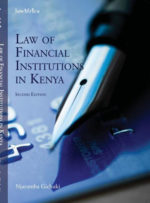This Ninth Edition contains extensive updates, with new cases relevant for students anxious to acquire practical knowledge that can be quickly put to use when they enter the profession. To use one example, Chapter 5, that deals with liability insurance, adds substantial new text on the duty to defend, including the Texas Supreme Court’s 2020 decision in Richards v. State Farm Lloyds. Chapter 5 also augments its coverage of multi-insurer allocation of liability with the addition of the California Supreme Court’s 2020 decision in Montrose Chemical Corp. of California v. Superior Court. Chapter 5 also has numerous new notes on almost every aspect of liability insurance. In addition to new cases, the Ninth Edition has been edited to add notes dealing with a variety of cutting-edge issues. This edition also incorporates numerous references to the American Law Institute’s Restatement of the Law of Liability Insurance. References to the Restatement are not confined to Chapter 5 inasmuch as the Restatement addresses a few subjects that lie beyond the confines of pure liability insurance issues. In short, the Ninth Edition brings students and instructors up to date.
Cases and Materials on Insurance Law
KSh 34,760.00
This Ninth Edition contains extensive updates, with new cases relevant for students anxious to acquire practical knowledge that can be quickly put to use when they enter the profession.
2 in stock (can be backordered)
Related products
-
Law of Financial Institutions in Kenya-Njaramba Gichuki
KSh 1,500.00The law of financial institutions in Kenya is contained in statutes as well as case law. The common law of England also plays an important role in the substantive law. Banking practice is elevated to the position of law (almost). The Central Bank of Kenya has powers to make guidelines and directives for the financial sector. When this is done, they operate within the confines of the law as the same are applied under the provisions of the Central Bank of Kenya Act, the Banking Act and the other relevant Acts.
-
Principles of Constitutional Law -(Law africa)
KSh 2,700.00The main aim of this book is to provide the reader with knowledge and understanding of some of the key concepts, doctrines and principles which make up that corpus of law known as constitutional law. Another aim is to develop a sound academic basis for the study of subjects based on public law, such as political science and international relations.
-
LEGAL PRACTICE MANAGEMENT
KSh 3,500.00This book seeks to illuminate the expansive nature of legal practice in the society. It is also aimed at provoking further debate, research and publication. The author draws from her knowledge and experience as an Advocate, Accountant, Certified Secretary and Governance expert.
-
Child Rights and the Law in East Africa
KSh 2,200.00The book seeks to streamline the rights and protection of children in the three common law East African countries through law both now and in the future. The book also serves as a resource material in the area of child rights and the law, not only in East Africa, but also across Sub-Saharan Africa. It further seeks to stimulate debate on effective domestication and implementation of international child rights standards in East Africa.
-
Introduction to Tax Law Revised Edition
KSh 1,600.00The rules of trade can be sophisticated and misunderstood by business people. In this book the author concisely explains the history of tax, how VAT is calculated with the aid of examples, the functions and the role of Kenya Revenue Authority, different trade treaties agreements, terms and documentation.
-
Accounting for Lawyers
KSh 1,200.00This book recognizes the fear faced by many law students and to a great extent the practicing lawyer concerning accounting and seeks to provide a basic and simplifi ed understanding to accounting principles for those who have no previous accounting background while at the same time introducing some advanced topics for students with previous exposure and thus a deeper scope of accounting principles. The book also sought to incorporate key accounting principles and relevant changes and developments in the Kenyan industry. A comprehensive glossary of terms has been provided to assist learners in grasping key meanings and explanations
-
Employment Law Guide for Employers
KSh 1,665.00The Industrial Court does in its endeavour to interpret the various sections of labour statutes. However, majority of these guidelines have not been made accessible to employers in a manner that is easily and properly understood and appreciated. This is because, even though there is an attempt to avail the decisions of the Industrial Court to the general public, the ratios and the guidelines thereof have not been analyzed in a short, concise and easier manner. This book seeks to address this gap by focusing on the realist perspective.
-
Handbook of Company Law
KSh 3,000.00This handbook covers the wider subject of business law which includes international elements of commercial law and the law of business associations. It covers a few of the topics which commonly feature in accountancy and business management courses in commercial and company law, and in curricular designed for undergraduate students of law.









Be the first to review “Cases and Materials on Insurance Law”